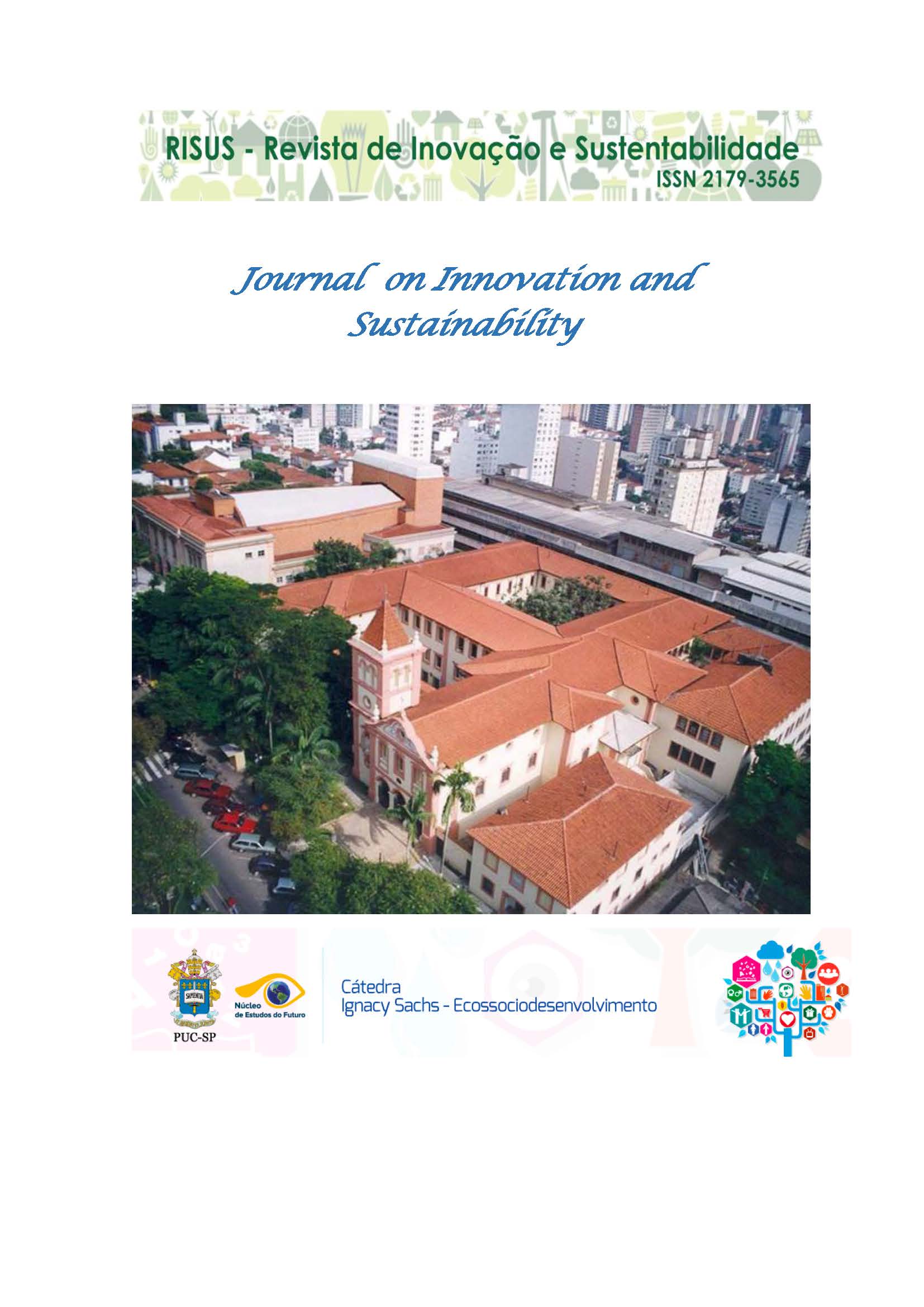Composites
a sustainable innovation alternative
DOI:
https://doi.org/10.23925/2179-3565.2025v16i1p53-61Keywords:
Innovation, Sustainability, Natural Fibres, Composite MaterialsAbstract
The aim of this article is to demonstrate the importance of innovation not only for the development of the economy of various nations, but also as an instrument for transforming and improving the quality of life on the planet through technological development that reduces environmental impacts, especially composite materials developed from natural fibres. This discussion is justified by the growing relevance of the issue of sustainability in recent decades, aggravated by the lack of raw materials and the various environmental catastrophes that have occurred in different parts of the world due to global warming. In view of this, government organisations and organised civil society have been looking for solutions to environmental problems through concrete actions to reduce environmental degradation. Words like reuse, recycle, collect and treat have become part of most people's vocabulary. Exploring nature takes on a new meaning, unrelated to any form of destruction. Within this context of sustainability, research involving the development of materials found in abundance in nature has gained prominence. Among them, composites reinforced by plant fibres have emerged as an ecologically and economically viable innovation to replace other types of synthetic fibres.
References
Schumpeter, Joseph Alois. Os Economistas–Teoria do Desenvolvimento Econômico. Editora Nova Cultural. São Paulo, 1997.
Pinsky, Vanessa; Kruglianskas, Isak. Inovação tecnológica para a sustentabilidade: aprendizados de sucessos e fracassos. Estudos avançados, v. 31, p. 107-126, 2017.
Nascimento, Thiago Cavalcante; Mendonça, Andréa Torres Barros Batinga de; CUNHA, Sieglinde Kindl da. Inovação e sustentabilidade na produção de energia: o caso do sistema setorial de energia eólica no Brasil. Cadernos EBAPE. Br, v. 10, p. 630-651, 2012.
De Negri, João Alberto; Kubota, Luís Claudio (Orgs.), Políticas de incentivo à inovação tecnológica no Brasil. Brasília: IPEA, 2008.
Araújo, Jéssica Evangelista; Ferreira, Rafael Lopes; De Carvalho, Ráfela Carolina Rodrigues. A questão ambiental no Brasil: políticas públicas e estratégias. Meio Ambiente e Sustentabilidade, v. 13, n. 7, 2018.
Franco, Francisco José Patrício. Aproveitamento da fibra do epicarpo do coco babaçu em compósito com matriz epóxi: estudo do efeito do tratamento da fibra. 2010, 77f. Dissertação (Mestrado em Processamento de Materiais a partir do Pó; Polímeros e Compósitos; Processamento de Materiais a part) - Universidade Federal do Rio Grande do Norte. Natal, 2010.
Rodrigues, Paula Raquel Barreto. Desempenho físico-mecânico de compósito fabricado com fibra do epicarpo do côco babaçu (Orbignya Phalerata) e resíduos poliméricos. 2019.102f. Dissertação (Mestrado em Agroenergia) – Universidade Federal do Tocantins, Programa de Pós-Graduação em Agroenergia. Palmas, 2019.
Pinsky, Vanessa Cuzziol et al. Inovação sustentável: uma perspectiva comparada da literatura internacional e nacional. RAI Revista de Administração e Inovação, v. 12, n. 3, p. 226-250, 2015.
Richter, Fernanda Altvater. As patentes verdes e o desenvolvimento sustentável/Green patents and sustainable development. Revista Meio Ambiente e Sustentabilidade, v. 7, n. 3, p. 383-398, 2014.

Downloads
Published
Issue
Section
License
This Journal is licensed under a Creative Commons Attribution-Non Commercial-No Derivers 4.0 International license.
1.The author (s) authorize the publication of the article in the journal;
2.The author (s) warrant that the contribution is original and unpublished and is not in the process of being evaluated in other journal (s);
3. The journal is not responsible for the opinions, ideas and concepts emitted in the texts, as they are the sole responsibility of its author (s);
4. The editors are entitled to make textual adjustments and to adapt the articles to the standards of publication.

